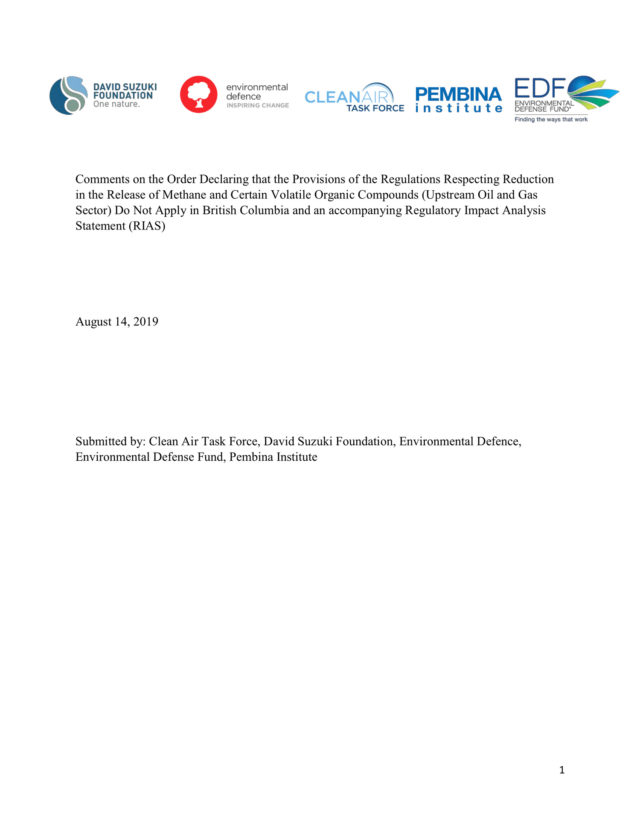Comments on the Order Declaring that the Provisions of the Regulations Respecting Reduction in the Release of Methane and Certain Volatile Organic Compounds (Upstream Oil and Gas Sector) Do Not Apply in British Columbia and an accompanying Regulatory Impact Analysis Statement
Published by:
David Suzuki Foundation and partners
Partners:
Clean Air Task Force,
Environmental Defence,
Environmental Defense Fund,
Pembina Institute
Climate solutions methane pollution, British Columbia, energy, greenhouse gas emissions, industry, policy and regulation
This is the second submission to the federal government on the proposed equivalency agreement for B.C. methane regulations. Cutting methane emissions from the oil and gas industry is one of the cheapest, fastest, most effective climate solutions, readily available with identified technology.
These comments on the draft equivalency agreement for the B.C. methane regulations would strengthen B.C.’s methane regulations if adopted. Recommendations include:
- Modelling assumptions should be updated to address the discrepancies identified in this submission
- The model should be improved to ensure that future reviews accurately assess environmental outcomes
- Equivalency should be reevaluated annually in consultation with stakeholders and use actual compliance data rather than assumed compliance rates
- Environment and Climate Change Canada should have an obligation to rescind or renegotiate the agreement if it cannot be demonstrated that the B.C. methane regulations are achieving equivalent emissions reductions
